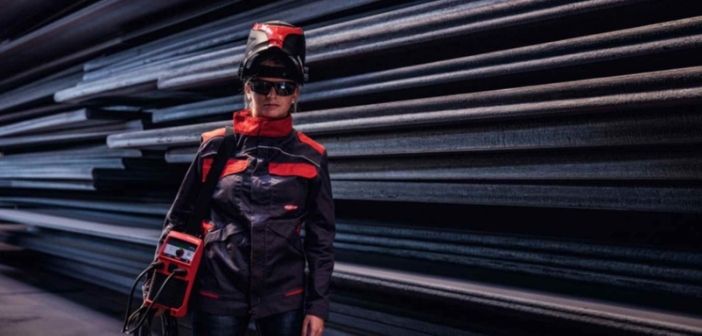Note: This article is based on the inputs from Mr. Rahul Kulkarni, National Segment Manager, Fronius India Private Limited.
Construction comprises building residential structures and many other large infrastructure and industrial structures. Welding in the construction industry is an essential part as the industry uses a large number of metals to hold the structures intact.
Let us delve into understanding the role of welding in the construction industry, the skills required, career opportunities along some challenges.
Importance of welding in construction
Wherever metal is used within the construction of buildings, bridges, or within the development of engineering projects, there welding finds its importance.
Structural integrity and durability are the most important considerations in the construction industry. Therefore, joining strength and quality of weld joint play a very important role. Industries have been recognising the importance of quality weld joints and are upgrading from old equipment to quality technology-based equipment.
Fronius Trans Pocket 150, Trans Pocket 2500, Trans Pocket 180 and Trans Steel 3500, Trans steel 4000 Pulse and Trans Steel 5000 MIG/MAG FCAW Synergic and other Advance Digital Microprocessor Controlled Welding equipment from Fronius are helping the construction industry to come out of their welding challenges.

A typical day in the life of a construction welder
Construction welders’ job is highly risk-prone as the welder has to perform welding at an elevation of several hundred meters from the ground level. This is mostly seen in industries like Power plants, Refineries, Oil and Gas, Fertilizer and Chemical plants, Construction, etc.
The job of construction welders is one of the highest-paid jobs within the construction industry. Welders work full-time and often work overtime. They primarily work outdoors and are exposed to hazardous situations on a day-to-day basis. They sometimes also work in confined spaces, on scaffolding, sometimes also in inclement weather.
A welder works with a construction contractor to attach the beams, columns, trusses, and footers that structure the structural framework of a building.
A welder also can weld non-structural metal building components like stairs, handrails and bridges between rooms, floor joists, steel framing studs, firewall, and other components that are too large or integral to the building design to bolt into position.
Skills required to be a construction welder
Apart from technical and welding skills, individuals must also possess the following skills:
- Physical strength and stamina
- Hand-eye coordination
- Manual dexterity
- Good teamwork
- Maths and problem-solving skills
- Attention to details
- Love for a job involving travel
- Interest in science and technology
Career options for youth in construction welding
- Welding Engineer
- Welding Fabricators
- Joining Experts
- Welding Supervisor
- Welding Inspector
- Pipe and Tube Joining Expert
- Structural Joining Expert
- Quality Engineer
- Welding Foreman
Challenges faced by construction welders
Welder safety: Safety is the first and foremost challenge welders will have to address to avoid any issues that may arise. Wearing safety gear like auto-darkening welding helmets, gloves, and wearing fire-resistant PPE (Personal Protective Equipment) of the right quality will help in reducing the risk.
Weld defect: The main reason for the welding defect is the violence of WPS (Welding Procedure Specification) parameters which is prepared based on standard application requirement and testing results.
Fronius machines have different levels of parameter locking function as per the industry requirement, which is helpful to control the defects.
Selection of right welding parameters: Right parameter selection is a time taking process. The industry needs skilled welders who can perfectly join two metals. One of the solutions for this is Fronius GMAW machines.
These machines are synergic machines, which means you have to provide some basic inputs to the machine, like the wire grade, gas composition, wire diameter, and thickness of base material. The machine then automatically sets the right parameter as per the application demanded.
Also read: Welding in Shipbuilding: Skills, Training, and Careers – https://nationalskillsnetwork.in/welding-in-shipbuilding-skills-training-and-careers/
Heavyweight welding power source: Welding transformers are very old technology and one of the basic versions of welding machines. Welding technology evolved further over the years to welding generators, welding rectifiers, welding inverters, and today we also have intelligent digital inverter welding machines at Fronius. This is synonymous with how we moved from age-old tape recorders to VCRs, VCDs, Digital Dolby Systems, and Blue-Ray discs and today we can access music digitally.
Well, transportation of welding transformers was also difficult due to its heavyweight. The welding quality was also low while welding with transformers. However, the latest welding machines are very light in weight, and output quality is advanced, as compared to that of transformers due to technology advancements in power electronics. Fronius has come up with a portable welding machine, which is smaller in size and weight to solve this problem.
Construction welding is one of the most high-paying jobs and is one of the exciting career options. If you are someone who loves taking up challenging tasks and wants to be part of the sector that is responsible for creating simple, complex, and sophisticated structures, then this might be the right career choice for you.














Comments 1